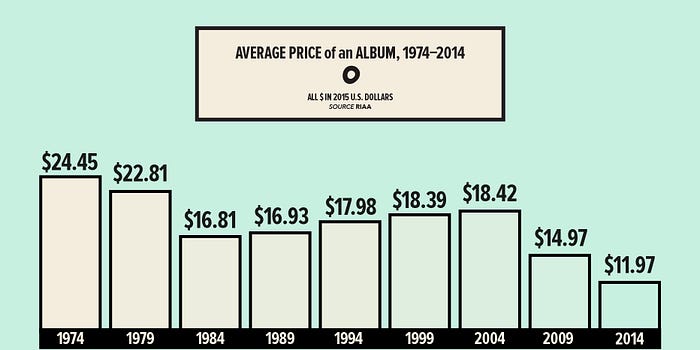Member-only story
Why We Need to Leave Record Labels Behind in 2020
Record labels are more obsolete than ever — it’s time for artists to take ownership of their music and cut out the middleman.

Record Labels Are Outdated
Before artists were able to use social media, SoundCloud, and GarageBand to take promotion, distribution, and recording into their own hands, being signed by a record label was the undisputed gold standard for a successful music career.
While the internet and inexpensive home studios offered musicians significantly more freedom, the fact that people stopped buying music was the first nail in the coffin for major labels, opening the floodgates for artists to become independent.
In 2002, the Recording Industry Association of American (RIAA) reported that 95.5% of the music industry’s revenue came from CD sales. Nowadays, 75% of that money comes from streaming, with only 10% from physical sales. This is devastating to record labels as they make drastically less money off of streaming, which is so inexpensive that Spotify didn’t even turn a profit until early 2019.
Imagine the enormous revenue made by Eminem’s label, which moved 10.6 million copies of The Marshall Mathers LP, the best selling solo rap album of all time. Keep in mind this was in 2000, when the average cost of an album was over $18. Now compare that to a Spotify subscription that costs between $5 to $10 a month and gives users access to over 30 million songs.

However, streaming services like Spotify aren’t to blame — the music industry as a whole has suffered tremendously since physical sales plummeted in the 2000s with the rise of the internet, Itunes, and piracy rendering CDs irrelevant.
Quite the opposite, it’s thanks to streaming services that music revenue started growing again for the first time this millennium, although still at a fraction of its peak.

